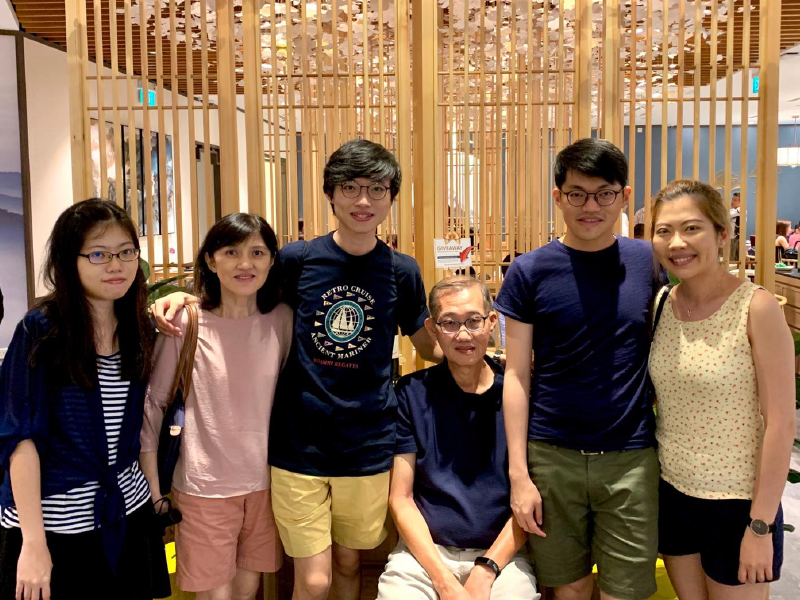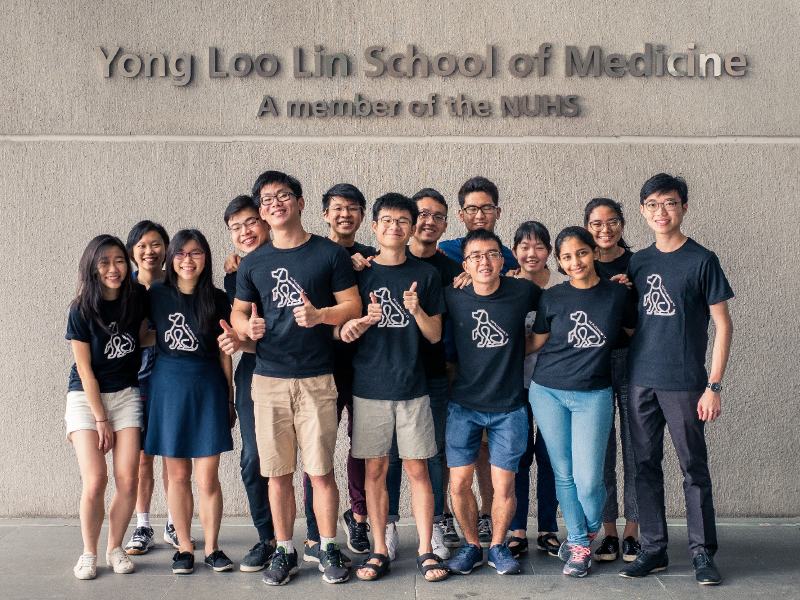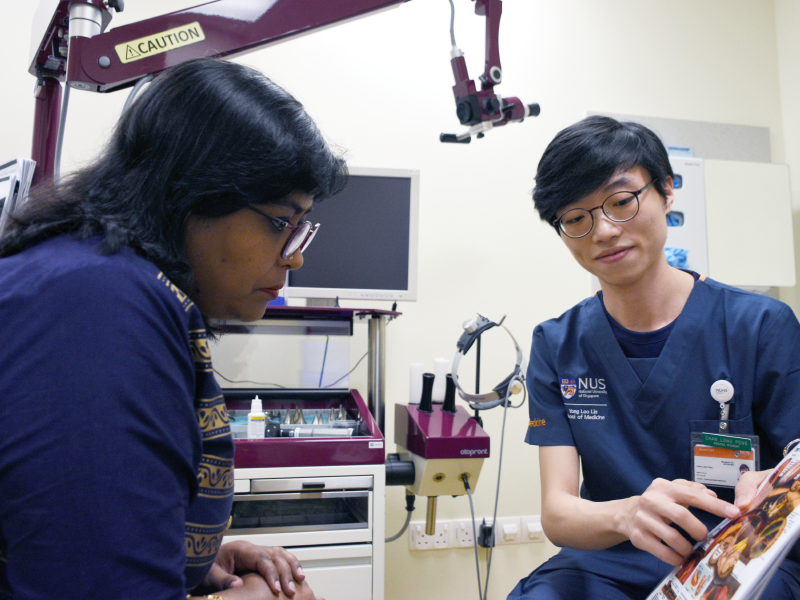Life’s Second Chances

Long Peng and his family
“I was the main caregiver to my father, who suffered a stroke in 2013. It happened during my second year of National Service,” recalled Phase IV medical student Chan Long Peng. The stroke resulted in a left hemiplegia which rendered his father bedridden.
This sudden infliction on the family led Long Peng to take two years off to care for his father. Each day, he assisted his father with bedside exercises and activities of daily living such as bathing, toileting and feeding. A large part of time and energy was also spent attending medical appointments. Part of rehabilitation meant a series of physiotherapy sessions to painstakingly retrain muscles that used to move so unconsciously in walking, sitting and standing. It included speech therapy, to help make sounds more intelligible and less frustrating.
He mused, “This was a trying period—I realised my father lost his identity as the family’s able, sole breadwinner. We needed to help him regain his independence as well as confidence. I spent this time taking care of him to ensure that his rehabilitation was complete. He’s since recovered and even had his driver’s license reinstated!”
During this time spent in and out of hospitals and medical facilities, Long Peng was won over by the empowering nature of medical work. He started to seriously consider pursuing an education in Medicine.
Long Peng said, “In the course of treatment, we befriended a patient who suffered brain injuries from a car accident. I saw how a team of medical professionals developed programmes for his rehabilitation and rallied together to treat him. I realised that caring for patients goes beyond treating the body; a kind word means a lot to a healing person. Treatment also encompasses emotional care.”
He elaborated that despite initial concerns on how he could fund his degree, Long Peng accepted a place at the University of New South Wales in Australia in 2015 and applied for financial aid, determined to secure funding for a medical education to alleviate his parents’ burden. He was granted the Lee Foundation Overseas Medical Bursary Education Fund for his first semester, and continued to work in between his studies to support himself and his school fees.
“I worked as a cleaner at a residential college during term breaks and tutored medical students. At that time, my siblings were shouldering our home mortgage and I wanted to take responsibility for funding my fees. But it all got a bit much. I decided to come back home to be closer to family in my second year, and was accepted into NUS Medicine,” said Long Peng.
He continued to apply for and receive financial aid on his return home. A large part of his fees and some living expenses are defrayed by the awards from the Lee Foundation, the Ministry of Education and the NUS Medicine alumni-established Christine Chong Hui Xian bursary. His parents continue to support the rest of his school fees.
Long Peng pointed out that this has taught him to be resilient and courageous in the face of life’s curve balls, “I believe in taking a positive attitude in facing problems. It’s all about how you perceive them. A mountain looks daunting when you stand at the its foot but once you scale it, the view you get at the top will be so beautiful. All the challenges you’ve experienced along the way will become beautiful memories for you to share with people you will meet who might be facing similar circumstances. So don’t give up. You only truly fail when you choose to give up.”
I believe in taking a positive attitude in facing problems. It’s all about how you perceive them. A mountain looks daunting when you stand at the its foot but once you scale it, the view you get at the top will be so beautiful.
– Chan Long Peng, Phase IV Medical Student

Long Peng (extreme right) with fellow ‘Playhouse 2019’ students, who worked on an annual theatre production.
He also highlighted that the support allows him to focus more on his studies. He is exploring various interests in the different disciplines and still thinking about whether he should eventually go into surgical or clinical practice. “However, I’m quite clear that I want to do something that will enable me to interact with my patients,” he said. “As a medical student, I find that most patients need a listening ear and want to be heard. This is something that I’ve been doing in my hospital attachments so far, and I enjoy it.”
Long Peng is looking forward to doing his bit to make a difference in people’s lives as a doctor. “Because of what happened to my dad, I would like to help other people have a second chance at life, and enable them to move on after a setback. It sounds clichéd, but I realised what powerful roles medical professionals play—it’s not always about curing, but providing the human touch in the process of treatment. I want to be part of the process.”

Long Peng explaining otitis externa, or inflammation of the external ear canal, to a patient.
